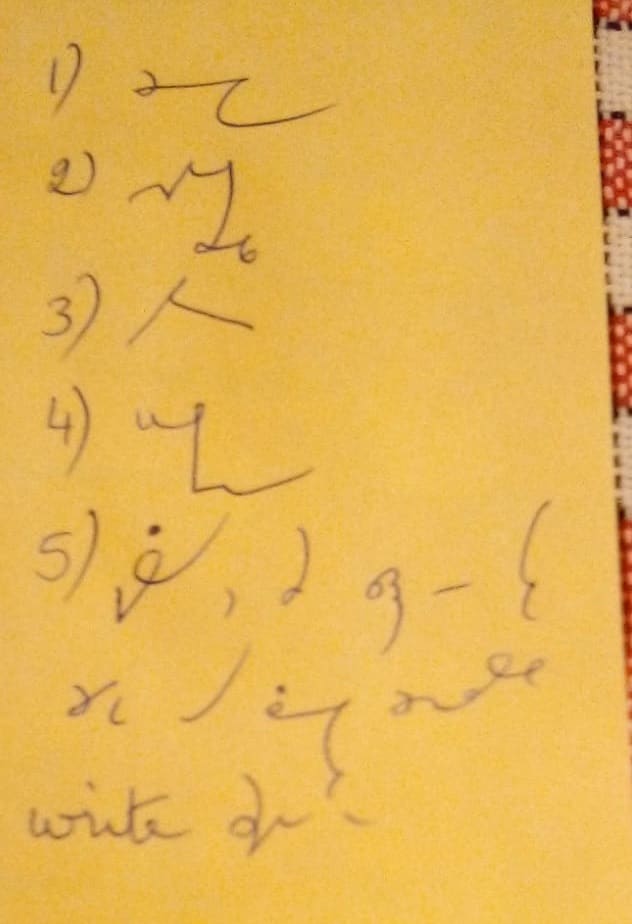I’ve been communicating with my mum in shorthand for a little while now and we’ve been doing textbook-based transcriptions to refresh her memory. I initially assumed that she learned DJS in both English and French, but I’ve been seeing surprising “mistakes” in her shorthand that sometimes look more like older series than actual mistakes. But as I can only guess, I’d like to know what you think.
For example, she keeps omiting the Is in “ain, aine” as in prochainement (which she writes proch-N-Ment without the circle before the N. Same thing in aubaine : o-b-n.
Obtenir, she writes : o-b-t-e-nr without the i circle before the R.
She writes existence with the ses blend.
And she makes extensive use of the den, dim, dum, tem tim tum blend far beyond the cases provided for in French DJS.
What do you think? Did she really learn DJS or something else? or is she just confused with the English version of the DJS series (I notice she writes simple and nombre with an M like I assume they are written in English, for example).

Thanks.
Some questions:
1. What year did she go to school?
2. Does she write simple with pl?
3. Does she write words that start with contr- as k-t-r-?
4. How does she write donc?
5. Does she write the o-hook on the side before r or l (as in Simplified and earlier), or does she write it up like in DJS?
By the way, I think it's very cool you're corresponding with her in shorthand!
Thank you! So I asked her and actually it has to be DJS because apparently they also used the same manuals that I’ve been using for French (I don’t know for English though as she doesn’t remember, but I guess it wouldn’t make sense if it was a different series, right?). She remembers they started with the English and spent most of their time on it, and only did French towards the end of the program as if it was just a detail, and they didn’t even complete the French manuals.
She learned shorthand in Canada in 1973.
In the meantime I got her to write the words you mentioned as well as the sentence "shorthand is very useful in business settings and helps secretaries write faster" in English, I’ll modify the opening post to insert the image. She’s embarrassed because she says it is probably riddled with mistakes, it’s the first sentence she’s ever written in English shorthand since the 70’s, but I told her you guys are very open-minded 🙂
Your mom learned DJS. Her writing is lovely: very neat and legible.
Thanks Carlos I’m sure she’ll be very happy to hear that. It’s surprising that she spontaneously uses a blend that comes from an earlier series though, maybe it goes to show how much sense this blend makes!
You’re welcome! Remember that English DJS is her real base writing where the blend is used all the time. She learned the French adaptation later, so the habit of using the blend in French without regard to French DJS theory just carried over. It's perfectly understandable.
It makes sense that your mother would have learned DJS in 1973, since it had been around for ten years at that point and S90 had not yet come out. She writes some things out a bit more fully than the textbooks suggest, but her style is still clearly DJS. As Carlos says, her writing is very nicely done and easily legible.
So cool that you're writing with your mom in shorthand!